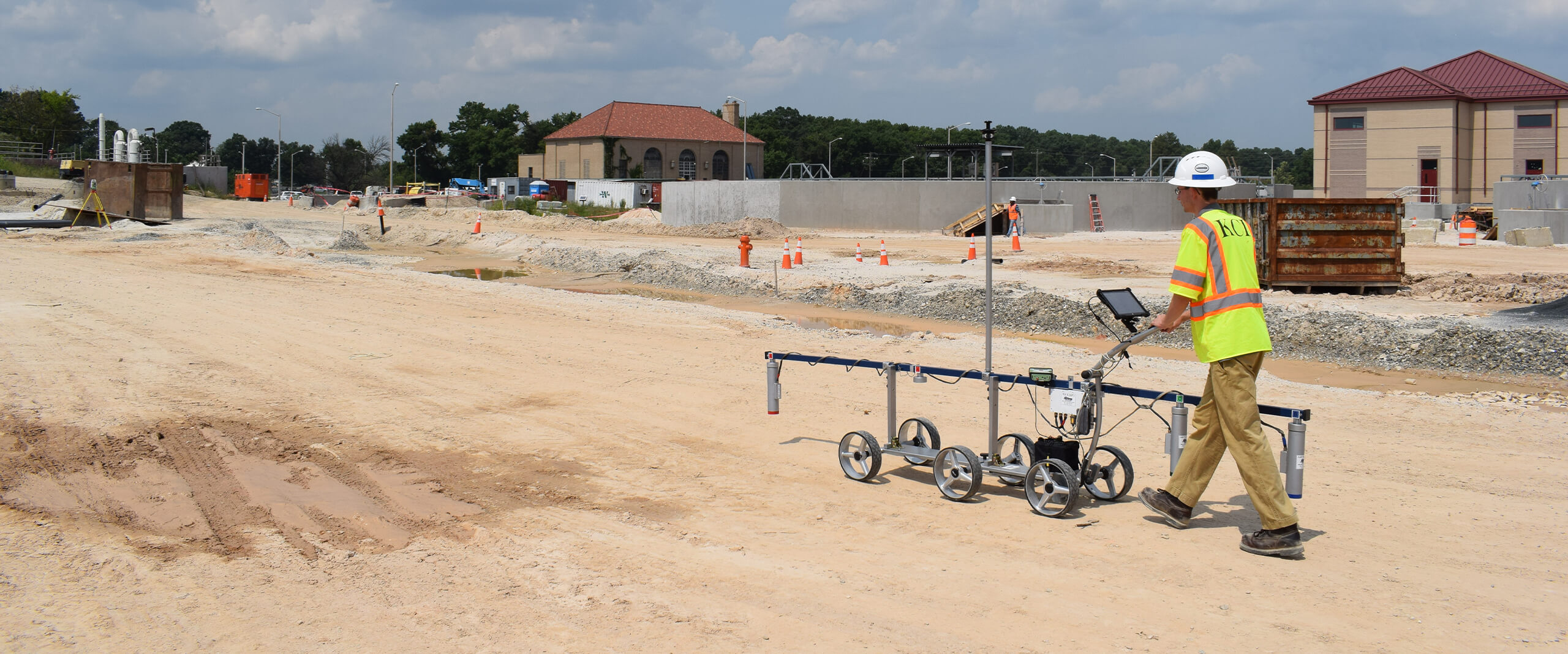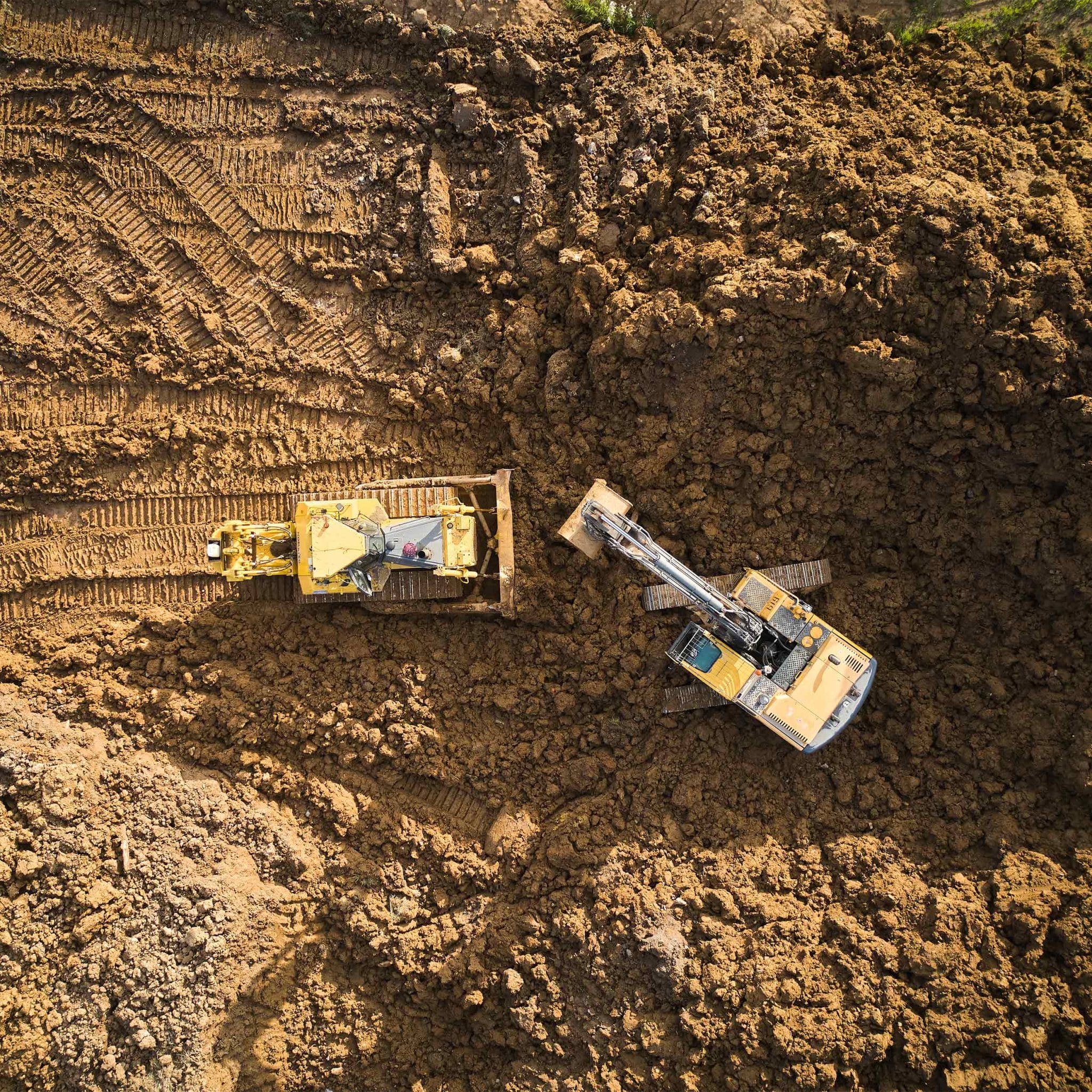Navigating the Complexities of Geotechnical Eng Projects
Navigating the Complexities of Geotechnical Eng Projects
Blog Article
Understanding the Comprehensive Duty of Geotechnical Engineers in Ground Investigation and Soil Evaluation for Construction Projects
Geotechnical engineers are essential to the success of construction projects, giving important understandings through detailed ground examinations and dirt evaluation. Their know-how in assessing dirt actions and employing sophisticated screening strategies educates critical choices that maintain structural integrity and security.
Function of Geotechnical Engineers
The crucial role of geotechnical designers in building jobs can not be overemphasized, as they provide crucial insights right into soil habits and site problems. These professionals are tasked with evaluating the viability of the ground for different types of frameworks, making certain safety and security throughout the construction procedure. Their experience includes a vast array of activities, including site characterization, soil tasting, and research laboratory testing, which are important for determining the mechanical and physical homes of the soil.
Geotechnical engineers use their searchings for to develop foundational layouts that fit load-bearing needs and alleviate threats connected to soil liquefaction, settlement, and slope stability. They play a critical duty in identifying potential risks, such as groundwater fluctuations and contamination, which can dramatically influence task stability. Moreover, they collaborate with engineers, civil designers, and specialists to ensure that geotechnical considerations are incorporated into the total design and construction phases.
Ground Investigation Methods
Ground examination strategies form the backbone of geotechnical design, allowing designers to acquire a comprehensive understanding of subsurface conditions. These methods are essential for examining dirt residential properties, establishing groundwater degrees, and identifying possible geological hazards.
Typical approaches consist of borehole boring, which permits the removal of dirt examples at numerous depths, offering critical data for analysis. In addition, in situ testing techniques, such as Common Infiltration Examinations (SPT) and Cone Penetration Tests (CPT), are utilized to examine soil strength and density directly in the ground.
Geophysical methods likewise play a substantial function in ground examinations. Techniques such as seismic studies and electrical resistivity tomography help examine subsurface characteristics without extensive excavation. geo tech engineering. These non-invasive methods are particularly helpful in big or sensitive locations where disruption should be lessened
Moreover, exploratory trenches can be dug deep into to aesthetically evaluate dirt layers and identify any anomalies. Each of these strategies contributes unique insights, allowing geotechnical designers to develop precise website assessments and educate style choices. In summary, a mix of these ground examination methods is essential for effective construction projects, guaranteeing safety and architectural integrity.
Soil Analysis Approaches
Dirt evaluation techniques are crucial for understanding the chemical and physical buildings of dirt, which straight affect the layout and construction of foundations and other structures. Various methods are utilized to evaluate soil characteristics, making sure that geotechnical engineers get precise information for informed decision-making.
One generally used method is grain dimension evaluation, which establishes the distribution of bit dimensions within a soil sample. This is crucial for identifying soil types and anticipating their habits under load. One more necessary method is Atterberg restrictions screening, which evaluates the plasticity and wetness content of fine-grained soils, supplying understandings right into their design residential or commercial properties.

Field tests, such as Basic Infiltration Examinations (SPT) and Cone Infiltration Examinations (CPT), offer important in-situ data pertaining to dirt strength and stratification. Jointly, these dirt evaluation methods form the structure of geotechnical examination, allowing engineers to develop safe and effective structures customized to the specific conditions of the site.
Threat Mitigation Techniques
Carrying out reliable danger mitigation methods is crucial for geotechnical engineers to deal with potential obstacles in construction jobs. These methods are critical in recognizing, evaluating, and managing threats related to dirt problems, website security, and groundwater changes, which can negatively affect task results.
One key approach includes conducting complete website investigations that utilize sophisticated geophysical methods and comprehensive dirt tasting. By acquiring accurate information on subsurface problems, designers can make educated choices on style and building methods. Additionally, using predictive modeling tools permits the simulation of various scenarios, allowing engineers to visualize potential issues and execute safety nets.
In addition, establishing clear communication channels amongst project stakeholders fosters a joint strategy to run the risk of management. Normal updates and examinations make sure that all events understand Check Out Your URL the evolving site conditions and Check Out Your URL can adapt their approaches appropriately.

Effect On Construction Projects
The performance of risk reduction strategies directly affects the total success of building and construction tasks. Geotechnical designers play an essential role in this domain name, as their competence in ground investigation and soil analysis educates crucial choices throughout the construction process. By properly examining dirt problems and recognizing possible risks, these experts enable job teams to design effective options that reduce threats connected with ground instability, water seepage, and various other geotechnical difficulties.
The impact of complete geotechnical evaluation is evident in different elements of construction tasks, including price monitoring, task timelines, and architectural integrity. Early recognition of concerns enables timely interventions, decreasing pricey delays and budget plan overruns. A detailed understanding of site conditions enhances the design and design procedure, making certain that frameworks are constructed imp source to endure ecological stress and prospective natural catastrophes.
Eventually, the payments of geotechnical designers are important to the effective execution of construction tasks. Their job not only fosters safety and security and conformity with guidelines yet also improves the lasting sustainability of frameworks, making sure that they execute effectively throughout their intended life-span. The partnership between geotechnical groups and other stakeholders is crucial for attaining optimal end results in building and construction undertakings.
Final Thought
In verdict, geotechnical designers carry out a critical function in building and construction jobs with thorough ground examinations and dirt analyses. Their experience in analyzing soil behavior, using numerous investigation techniques, and carrying out risk reduction strategies dramatically adds to the architectural integrity and security of constructed settings. By teaming up with multidisciplinary teams, these experts enhance project effectiveness and make sure compliance with safety and security standards, eventually resulting in effective construction results and lowered possible threats.
Geotechnical designers are integral to the success of construction tasks, giving crucial understandings via extensive ground examinations and soil evaluation.The essential function of geotechnical engineers in construction jobs can not be overstated, as they offer necessary understandings right into soil behavior and website conditions. Their expertise encompasses a large range of tasks, including site characterization, soil sampling, and laboratory testing, which are vital for establishing the mechanical and physical buildings of the soil.
By precisely assessing soil conditions and recognizing prospective risks, these experts allow task teams to develop efficient services that minimize threats linked with ground instability, water seepage, and other geotechnical challenges.
In verdict, geotechnical engineers carry out a crucial function in building tasks through detailed ground investigations and dirt evaluations.
Report this page